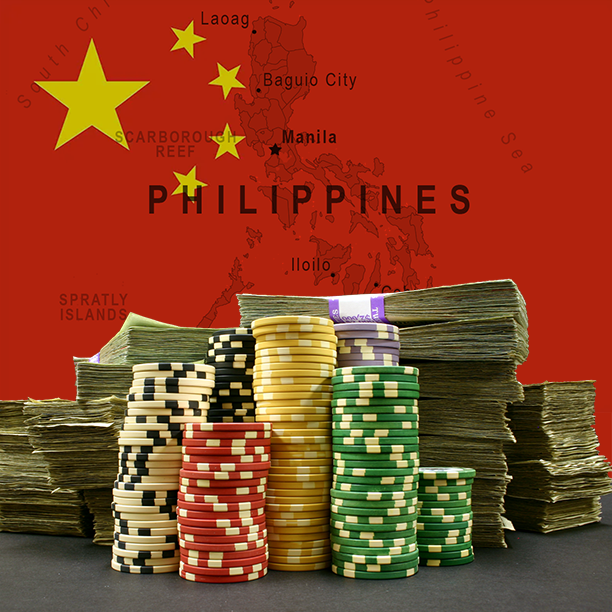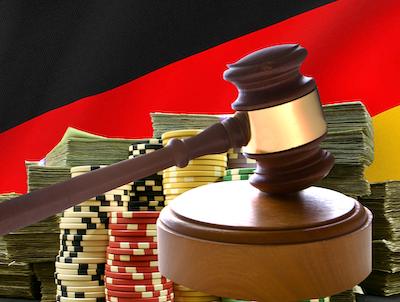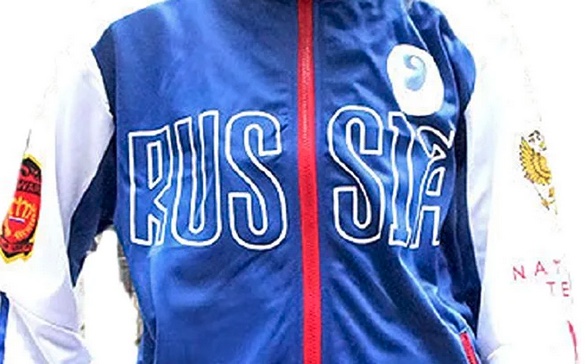The biggest global gaming stories from Asia and Europe
Around the world, 2022 was another year for big news in the gambling industry, both for players and operators. Instead of talking about growth and new markets, the conversations instead centered around laws and licensing, with a bit of politics thrown in. Germany finally approved a working treaty to allow all types on Internet gambling for its citizens, yet stories coming from Asia dominated much of the news reels for players, investors and casino companies.
I'll start out with the 5th topic and move around the globe to find the top 5 gambling stories of 2022.
5. Sweden’s new gambling legislation
Like many jurisdictions, problem gambling in Sweden has been a major concern. According to the Swedish Public Health Agency 130,000 people share a household with at least one person who has a gambling problem. The agency also conducted a survey which showed that 82% of all Swedes of legal gambling age have placed a bet for money in the past year, making it one of the largest gambling economies in the industrialized world. Consequently, the government has been looking for ways to combat problem gambling and decided the best way to do so was with new gambling legislation. The new legislation, titled "Measures to ensure a healthy and safe gaming market" passed in November and is set to be enacted by July 2023. The new rules aim to exclude all illegal gambling operators from Sweden and will require payment providers to ensure they are only processing payments for legal gambling. Businesses that provide services to gambling operators like software developers will be required to possess a license indicating the company meets all the criteria outlined in the legislation. The process for obtaining the license opens on March 1, 2023. These new licenses will be required to be in place by July 1, 2023. The application fee is set at 10,000 euros and will only be open to suppliers that operate in legal regulated markets. Consequently, many black-market suppliers will be disqualified from obtaining a license from the start.
The new legislation, titled "Measures to ensure a healthy and safe gaming market" passed in November and is set to be enacted by July 2023. The new rules aim to exclude all illegal gambling operators from Sweden and will require payment providers to ensure they are only processing payments for legal gambling. Businesses that provide services to gambling operators like software developers will be required to possess a license indicating the company meets all the criteria outlined in the legislation. The process for obtaining the license opens on March 1, 2023. These new licenses will be required to be in place by July 1, 2023. The application fee is set at 10,000 euros and will only be open to suppliers that operate in legal regulated markets. Consequently, many black-market suppliers will be disqualified from obtaining a license from the start.
Since online gambling is illegal in Sweden, the rules only apply to legal land-based gambling which includes casinos, poker, sports betting, bingo, lotteries and horse racing. The new legislation also includes measures that will address match fixing and there are plans in place to expand a crackdown on advertising and promotions, particularly on sports and casino games, which the government claims encourages problem gambling.
While the legislation only addresses land-based gambling, there is belief that the Swedish government is taking these new measures to weed out bad faith operators and see if there is a way to enact a system that will allow for safe and profitable online gambling. In many ways, this is believed to be very similar to what the United States did when it shut down illegal sites on Black Friday and then passed a law the next year to license and regulate online gambling.
4. The Philippines cracks down on operators after Chinese government warnings
Gambling in the Philippines is overseen and licensed by the Philippine Amusement and Gaming Corporation (PAGCOR), an entity that was founded by Ferdinand Marcos, in an attempt to stop illegal gambling in the country. Initially PAGCOR oversaw a large privately owned land-based casino in Manilla Bay, but it later expanded to oversee other legal, privately-owned land-based casinos, bingo parlors, gambling pools and e-game cafes in the country. It also operates some entities of its own, including PAGCOR casinos and slot clubs.
In 2016, the country welcomed offshore operators to conduct tax-free gambling via. servers located in the country, provided they were not targeted to Philippine residents in exchange for a large license fee. The initiative which was announced by President Rodrigo Duterte was seen as a way to bolster the country’s revenue. Almost half the players playing at the POGO were from China and the majority of POGOs hired Chinese nationals to market and manage the gambling to that demographic. At its peak around 300,000 Chinese citizens were employed by POGOs and by 2019 almost 7.2 billion Philippine pesos (around $125 million USD) was gambled. Starting in 2020, revenues began to decline for both the POGOs and all casinos in the Philippines due to the pandemic, and in 2022 the Chinese government gave the Philippine government (along with Vietnam and other neighboring countries) an ultimatum to stop the solicitation of Chinese gambling or face sanctions from China. Realizing they really had no choice, the Department of Justice announced that it was shutting down 175 POGOs for what it deemed was their involvement in criminal activity. It also deported 40,000 Chinese nationals that were working at the POGOS. The official report cited money laundering, kidnapping, prostitution and even murder as the reason for the shutdowns, although most realized it was an excuse, as the real motive was to appease the Chinese government. The Philippine government also announced it was phasing out all POGOs in the next couple of years that are not officially licensed by PAGCOR, which currently numbers just 34, and a rule is being enacted that they cannot target Chinese citizens. In an announcement PAGCOR said these 34 operators and 127 accredited service providers will no longer be called POGOS and will be seen in the same light as operations that are run by PAGCOR itself.
Starting in 2020, revenues began to decline for both the POGOs and all casinos in the Philippines due to the pandemic, and in 2022 the Chinese government gave the Philippine government (along with Vietnam and other neighboring countries) an ultimatum to stop the solicitation of Chinese gambling or face sanctions from China. Realizing they really had no choice, the Department of Justice announced that it was shutting down 175 POGOs for what it deemed was their involvement in criminal activity. It also deported 40,000 Chinese nationals that were working at the POGOS. The official report cited money laundering, kidnapping, prostitution and even murder as the reason for the shutdowns, although most realized it was an excuse, as the real motive was to appease the Chinese government. The Philippine government also announced it was phasing out all POGOs in the next couple of years that are not officially licensed by PAGCOR, which currently numbers just 34, and a rule is being enacted that they cannot target Chinese citizens. In an announcement PAGCOR said these 34 operators and 127 accredited service providers will no longer be called POGOS and will be seen in the same light as operations that are run by PAGCOR itself.
It is expected that within the next couple of years, operations, both land-based and online, which target Chinese nationals from all Asian jurisdictions (except Macau), will be deemed illegal, and any company who violates this rule will lose any license it receives from the host country that permits it to offer offshore gambling.
3. Macau’s future is more unclear than ever
In the years prior to the pandemic, Macau was seen as a cash cow that every land-based casino company wanted to take advantage of. Sheldon Adelson was so convinced that Macau and Singapore were locations where the real money was going to be made, that he decided to throw the majority of his resources into Asia. Unfortunately for the casino companies located there, in 2019 the Chinese government decided it was going to take a stand to ensure Chinese nationals didn’t gamble too much and put in heightened security around visas to make sure Chinese nationals weren’t visiting Macau more than they were allowed and weren’t gambling more than they were permitted. The government also launched an attack against junkets, which had been the bread and butter to much of Macau’s success. Consequently in 2019, revenue at Macau casinos dipped 3.4% compared to 2018. As bad as 2019 was the majority of Macau’s woes happened when Covid-19 hit in February 2020. A lockdown of casinos for almost a month, a forced 14-day quarantine for foreigners, including Chinese nationals that came to Macau, and other social distancing requirements led to a drop in total revenue to just $7 billion USD in 2020 and $10 billion in 2021. That low revenue has led to a situation where most casinos can’t cover their fixed costs.
As bad as 2019 was the majority of Macau’s woes happened when Covid-19 hit in February 2020. A lockdown of casinos for almost a month, a forced 14-day quarantine for foreigners, including Chinese nationals that came to Macau, and other social distancing requirements led to a drop in total revenue to just $7 billion USD in 2020 and $10 billion in 2021. That low revenue has led to a situation where most casinos can’t cover their fixed costs.
There was hope that 2022 would see a return to normal, but Covid breakouts in Beijing and Shanghai, along with travel bans from other countries, meant that tourism remained low, and revenues are worse than ever. In fact, reports say that Macau gambling revenue in 2022 was 50% lower than 2021 as gambling tourists chose to visit places like Las Vegas, where they are not limited in play and casinos have more or less opened without restrictions.
To add to the frustration of operators, Macau licenses were set to expire in 2023, and the Macau government indicated it would only license a maximum of six operators, the current number operating in the special region. Genting, a large Malaysian conglomerate, threw their hat into the ring for a license and there were expectations that they would be licensed and one of the U.S. based operators would be out. This was a catch-22 for U.S. based casinos as they still believed in Macau and had to pour money into their bids for maintaining their licenses, including promises related to things like infrastructure and entertainment that will not benefit them financially, plus there was no promise that Macau would ever return to the type of panacea it was once viewed. In November, Macau decided to renew the six existing licenses and denied Genting's application, which clearly made LVSC, MGM and Wynne happy. But, it still doesn't change the fact that Macau revenues are the lowest ever and new Chinese government oversight into illegal activities and junkets will make it difficult for any Macau casino to make the type of money they did before 2019, when they were able to lure big gamblers by bribing officials to look the other way to illegal activities like drug use and prostitution at the casinos, which were important incentives for many high rollers in Macau.
2. The continuing misadventures of the German gambling treaty
After a tumultuous adventure trying to get a national gambling treaty passed, Germany finally enacted the Fourth Interstate Treaty on Gambling in 2021 which gave operators the right to offer sports betting, online slots and poker. The prior 12 years trying to get an interstate treaty passed was something one would have expected to see in a Marx Brother’s comedy, it was so outrageous. Germany initially tried to pass legislation in 2010 that would only allow online sports betting, with the majority of licenses given to German companies. This was immediately killed after the EU told them that limiting licenses to local companies violates all aspects of the EU treaty they signed. Next the country’s legislators responded to that by expanding the number of licenses from 20 to 40, but again challenges from non-German companies that weren't awarded a license, along with EU and German courts who were worried that limiting licenses was illegal, forced the country to abandon their legislation and start over.  Eventually, the German legislators came to an agreement that would create unlimited sports betting licenses, which should have satisfied everyone. Except, various state governments indicated that they now wanted legislation that included casino betting too, especially considering that one rogue state, Schleswig-Holstein opted out of the national treaty from the start and issued licenses for sports betting, casinos and poker with huge success and profitability. The legislators finally waved the white flag and agreed to allow unlimited online licenses, not only for sports betting, but also for casinos and that treaty went into effect in July 2021 after it received buy-in from all states.
Eventually, the German legislators came to an agreement that would create unlimited sports betting licenses, which should have satisfied everyone. Except, various state governments indicated that they now wanted legislation that included casino betting too, especially considering that one rogue state, Schleswig-Holstein opted out of the national treaty from the start and issued licenses for sports betting, casinos and poker with huge success and profitability. The legislators finally waved the white flag and agreed to allow unlimited online licenses, not only for sports betting, but also for casinos and that treaty went into effect in July 2021 after it received buy-in from all states.
The problems unfortunately, didn’t end there.
The German government has been slow processing applications because it appears they want their pound of flesh from companies that had been catering to German customers from outside of Germany prior to the new legislation and thus have only licensed about three companies, despite getting dozens of applications. Without spelling out exactly what the government expects before allowing a license, there are indications that the German government wants fines paid by those companies to the tune of all losses incurred by German bettors, which would be millions of euros. There is also a rule in the treaty that allows states to opt-out of the treaty and apply for a slots license instead, which would allow the state to run casino games as part of the state lottery monopoly. Saxony and Thuringia have decided not to buy into the new gambling treaty and instead applied for an online slots license. And there are indications that other states could follow. The rules and taxation for slots licenses are different for land-based gambling, online gambling and the slots lottery, which some EU regulation groups are fighting, as different treatment of taxes may violate EU rules.
Another concern which is causing some gambling companies to reconsider whether they want to get involved in the new German online market are the high taxes and restrictive rules. Along with an insane 5% turnover tax on sports betting and 5.3% turnover tax on casino wagering, a maximum bet of 1 euro per spin has been placed on slots, no jackpot games are allowed for slots, and a 1,000 euro spending limit per-year, per-player has made it virtually impossible for any online gambling operator to make money. Moreover, rules that effectively amounted to a ban on advertising and promotions were put in place resulting in several teams challenging the government in court to reverse that new rule since they hoped to make money on sponsorships.
Perhaps most insane and frustrating for gambling companies and legislators is that several bettors who lost money with online gambling companies prior to the treaty being enacted want their losses back. Frankfurt courts in May of 2022 ordered an unnamed online casino based in Gibraltar to pay a player 26,000 euros for losses incurred in that casino between 2018 and 2020, when online gambling was illegal, and in April, Frankfurt ordered another player who bet at a Malta casino to have 12,000 euros returned to him for losses he incurred in 2017. Other courts, including ones in Munich, Duisburg and Euskirchen, denied claims for losses by players saying that the players voluntarily sent their money to the websites and are solely to blame for their losses, but Frankfurt has set a precedent to have losses returned to players residing there, and it appears other states are going to follow Frankfurt's lead. Consequently, some websites, like Bet365, who have applied for a license under the Fourth Interstate treaty, are so convinced they will lose any lawsuit filed against them in Frankfurt, that they have voluntarily sent back money that players lost who filed a claim against them.
So, while the new Treaty was supposed to solve the German situation, it seems that the issues may be more in disarray than ever.
1. The ban on Russian teams and players after the invasion of Ukraine
The invasion of Ukraine by Russia and supported by Belarus has been one of the biggest global tragedies in some time. In the unprovoked war, almost 7,000 civilians have been killed, including over 400 children, and almost 11,000 have been injured, among them 800 children. This is in addition to the more than 200,000 soldiers killed or wounded on both sides, not to mention the massive destruction of infrastructure, homes and livelihood.
In response to the attack, many sports organizations decided to ban teams from Russia and Belarus from competing as a way to punish Russia for their actions. The IOC announced it was banning athletes from Russia and Belarus until further notice, meaning that it is unlikely that anyone from those countries would be able to compete in the 2024 summer games in Paris. In the past the IOC allowed athletes to compete under the Olympic flag at the games, but this would entail a full out ban on any Russian or Belarus nationals. The Russian athletes were allowed to compete in Beijing in the winter games only because Russia held off the attack until after the games were completed. Russian athletes, however, were banned from participating in the Paralympic Games in Beijing the following month. Russian teams were also banned from all UEFA and FIFA events, including the Champions League and World Cup qualifying. The International Ice Hockey Federation, including the World Junior Hockey Championships banned Russia and Belarus; the World Figure Skating Championships banned both nations; The International Ski Federation and the International Basketball Federation also banned both nations; and other sports such as badminton, canoeing, curling, fencing, etc. banned Russia and Belarus athletes too. It was also announced that Russia and Belarus would be banned from the 2023 Rugby World Cup. Various series also canceled events that were to be held in Russia including the Champion’s League Final which was to be held in Saint Petersburg, and the Russian Formula 1 Grand Prix that was to be held in Sochi. The international Judo Federation also suspended Vladimir Putin as its honorary president and canceled all tournaments to be held in the country.
Various series also canceled events that were to be held in Russia including the Champion’s League Final which was to be held in Saint Petersburg, and the Russian Formula 1 Grand Prix that was to be held in Sochi. The international Judo Federation also suspended Vladimir Putin as its honorary president and canceled all tournaments to be held in the country.
As for individual participants in sports that did not feature the country, the WTA and ATP left the decision up to the individual tournament organizers and, in response, Wimbledon banned Russian athletes from competing, including the #2 ranked player at the time Daniil Medvedev, although the French Open and U.S. Open allowed him to play, claiming that individual free agents shouldn’t be punished for the actions of the country. Formula One Driver Nikita Mazepin was also fired by Haas after the invasion, since his entry was mostly funded by the Russian government. There was some concern that the NHL was considering a ban on Russian players, which would have been a major blow to the teams and players since there are currently 54 players in the leagu,e including Alexander Ovechkin (who was seen in a Twitter post posing with Putin and calling him a great leader), Evgeni Malkin, Nikita Kucherov and many other top players. The NHL by all accounts, decided that it wasn't fair to ruin the lives of players who are not connected to Russia's politics and one player Artemi Panarin, even had to return to Russia to save his family from a kidnapping because he was a vocal opponent of Putin.
Along with the upset to the tournaments, the ban also caused some issues with bettors. According to some sources, there were future bets placed at sportsbooks on some of the teams to win their tournaments which may not have been refunded since all bets stand on futures even if the team doesn’t compete and at least one bettor on Twitter was furious that he lost his future wager on Daniil Medvedev to win Wimbledon which again was not refunded for the same reason.
So given the powerhouse that Russia is in the International sporting world and the ban on athletes in major international competitions, it was the biggest global story in 2022.
Read insights from Hartley Henderson every week here at OSGA and check out Hartley's RUMOR MILL!







































